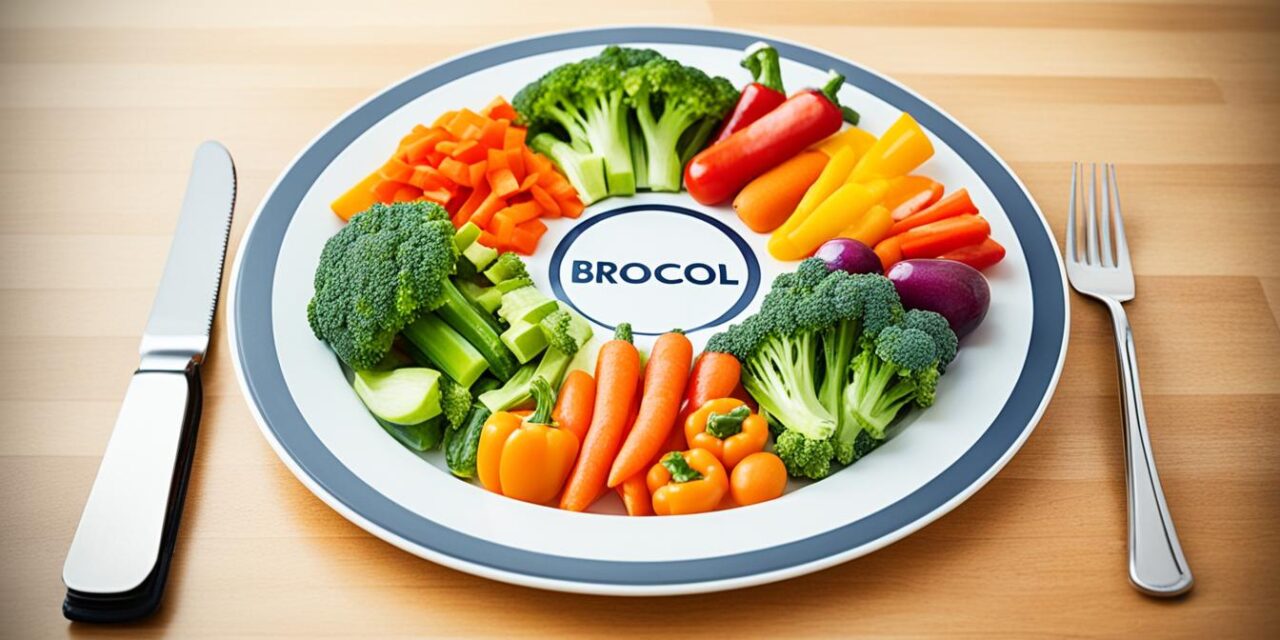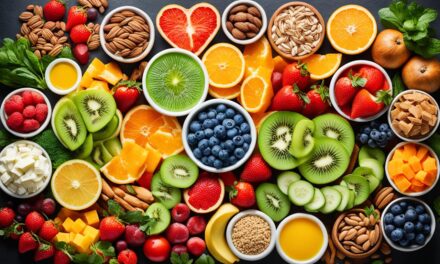Are you tired of trying fad diets that promise quick weight loss but leave you feeling unsatisfied and hungry? Well, it’s time to consider a different approach – the vegan diet. Yes, you heard it right! Going vegan may just be the ultimate weight loss solution you’ve been searching for.
Now, I know what you’re thinking – vegan diet? Isn’t that all about salads and bland tofu? Trust me, it’s so much more than that. Let me paint a picture for you:
Imagine sitting down at a cozy café, with a plate of beautifully vibrant veggies, perfectly roasted nuts, and a mouthwatering plant-based burger that looks and tastes just as delicious as its meaty counterpart. Your senses are titillated, and your taste buds are dancing with joy. You take a bite, and it feels like an explosion of flavors, textures, and satisfaction in your mouth.
That’s the power of a vegan diet – a world of culinary delights that not only nourishes your body but also leaves you feeling satiated and fulfilled. And the best part? It can help you shed those extra pounds! Let’s explore why the vegan diet is gaining so much attention for its weight loss benefits.
Key Takeaways:
- Going vegan can be a delicious and satisfying way to lose weight.
- A vegan diet includes a variety of plant-based foods, from colorful vegetables to protein-rich legumes and nuts.
- Vegans naturally consume fewer calories due to the high fiber content in plant-based foods, leading to weight loss.
- Research has shown that vegans tend to have a lower body mass index (BMI) compared to non-vegans.
- Consulting with a healthcare professional or registered dietitian can help ensure that you are meeting your nutritional needs while following a vegan diet.
What is a Vegan Diet?
A vegan diet is not just about what you eat, it’s a lifestyle choice. It excludes all animal products, including meat, dairy, eggs, and cheese. Instead, a vegan diet focuses on consuming plant-based foods such as fruits, vegetables, nuts, seeds, legumes, and whole grains. By embracing a vegan lifestyle, you’re not only making a dietary change but also taking a stand against animal cruelty and promoting environmental sustainability.
When following a vegan diet, you also avoid products that contain animal by-products, such as gelatin or whey. This means being mindful of the ingredients in processed foods, as they can often contain hidden animal products. Veganism goes beyond just food choices, extending to other aspects of life, such as avoiding leather and fur products and opting for cruelty-free beauty and medication that are not tested on animals.
Veganism is not just about what you can’t eat, but also about exploring the wealth of delicious and nutritious plant-based foods that you can enjoy. It’s about embracing a compassionate way of life that respects the well-being of animals and the planet.
“Veganism is not a sacrifice, it’s a joy.” – Gary L. Francione
A vegan diet can be visually appealing, as it is packed with vibrant and colorful fruits and vegetables. It is a way to nourish your body with wholesome, nutrient-dense foods while minimizing your impact on the environment. Whether you choose a vegan diet for health reasons, ethical beliefs, or environmental concerns, it can be a rewarding and fulfilling lifestyle choice.
Can a Vegan Diet Help with Weight Loss?
So, you’re considering a vegan diet for weight loss? You’re on the right track! Studies have shown that following a vegan diet can indeed lead to weight loss
Well, one of the reasons why vegans tend to shed those extra pounds is because plant-based foods are high in fiber. This means that they make you feel fuller for longer, reducing the likelihood of overeating or snacking on unhealthy foods. The high fiber content also helps regulate digestion and maintain a healthy gut.
But that’s not all – research has also found that vegans tend to have a lower body mass index (BMI) compared to non-vegans. This could be attributed to the lower calorie intake of a vegan diet, as plant-based foods tend to be less calorie-dense than animal products.
Did you know? Vegan diets have been shown to be more effective for weight loss than other diets, even when individuals are allowed to eat until they feel full. So you can enjoy satisfying meals without worrying about the calorie count!
However, it’s important to keep in mind that the effectiveness of weight loss on a vegan diet will depend on your overall calorie intake and the quality of your diet. It’s still possible to overeat on a vegan diet if you indulge in unhealthy, processed vegan foods high in added sugars and fats.
Remember, a well-balanced vegan diet involves consuming a variety of whole plant-based foods, including fruits, vegetables, nuts, seeds, legumes, and whole grains. By incorporating these nutrient-dense foods into your diet, you’re not only promoting weight loss but also nourishing your body with essential vitamins, minerals, and antioxidants.
So, if you’re looking to shed those pounds and improve your overall health, a vegan diet could be the way to go. Just make sure to prioritize high fiber intake and maintain a balanced calorie intake for optimal results.
The Health Benefits of a Vegan Diet
While weight loss is often the main focus when discussing the benefits of a vegan diet, there are many other positive effects on your health. Embracing a plant-based lifestyle can contribute to various aspects of your well-being, including blood sugar control, heart health, cancer risk reduction, arthritis management, kidney function, and even Alzheimer’s disease prevention.
Blood Sugar Control and Reduced Diabetes Risk
Research has shown that following a vegan diet can help with blood sugar control, making it an excellent choice for individuals with diabetes or those at risk of developing type 2 diabetes. The high fiber content of plant-based foods, along with their low glycemic index, can help regulate blood sugar levels and improve insulin sensitivity.
Heart Health
A vegan diet is associated with improved heart health. By eliminating animal products, which tend to be high in saturated and trans fats, you can lower your cholesterol levels and reduce the risk of heart disease. Plant-based diets are also rich in heart-healthy nutrients, such as antioxidants, fiber, and unsaturated fats, which can further promote cardiovascular well-being.
Reduced Cancer Risk
Studies suggest that following a vegan diet may lower the risk of certain types of cancer. A plant-based diet typically includes a variety of fruits, vegetables, and whole grains, which are rich in antioxidants, phytochemicals, and fiber. These components have been linked to a reduced risk of cancer, particularly colorectal, breast, and prostate cancer.
Arthritis Management
Vegan diets may also alleviate symptoms of arthritis. Some research indicates that plant-based diets can help reduce inflammation and pain associated with rheumatoid arthritis. The abundance of fruits, vegetables, whole grains, and legumes in a vegan diet provides essential nutrients and antioxidants that support joint health and inflammation control.
Kidney Function
The adoption of a vegan diet may have positive effects on kidney function. Plant-based diets are often lower in phosphorus and protein, relieving stress on the kidneys. This can be particularly beneficial for individuals with chronic kidney disease or those at risk. However, it’s important to consult with a healthcare professional for personalized guidance.
Alzheimer’s Disease Prevention
While more research is needed in this area, some studies suggest that a vegan diet may help reduce the risk of Alzheimer’s disease. The abundance of fruits, vegetables, nuts, seeds, and whole grains in a plant-based diet provides essential nutrients, antioxidants, and anti-inflammatory compounds that support brain health and cognitive function.
Incorporating a vegan diet into your lifestyle can offer a myriad of health benefits beyond just weight loss. By embracing plant-based nutrition, you can take proactive steps towards improving blood sugar control, heart health, cancer risk, arthritis management, kidney function, and potentially reducing the risk of Alzheimer’s disease.
Conclusion
So, is the vegan diet the ultimate weight loss solution? Well, it certainly holds many benefits for shedding those extra pounds. By eliminating all animal products and focusing on plant-based foods, you can achieve weight loss, improve blood sugar control, and enhance heart health.
But, before you dive into this trendy diet, remember that balance is crucial. Making sure your vegan diet provides all the necessary nutrients is key. Consult with a healthcare professional or registered dietitian to ensure you’re meeting your nutritional needs while following a vegan lifestyle.
In summary, the vegan diet offers a promising weight loss journey, along with a plethora of health benefits. From reducing the risk of certain diseases to fueling your body with plant-based goodness, it’s a diet worth considering. So, why not give it a try and see if it’s the right fit for you?
FAQ
Is the vegan diet effective for weight loss?
What foods are excluded in a vegan diet?
Can a vegan diet help with blood sugar control?
Are there any health benefits of a vegan diet?
MORE SOURCES TO READ:
- https://www.linkedin.com/pulse/vegan-diet-best-weight-loss-7-day-plan-included-joe-johan-leech
- https://www.everydayhealth.com/diet-nutrition/diet/vegan-diet-guide-benefits-risks-weight-loss-effect-food-list/
- https://www.healthline.com/nutrition/vegan-diet-guide
![]()














Recent Comments